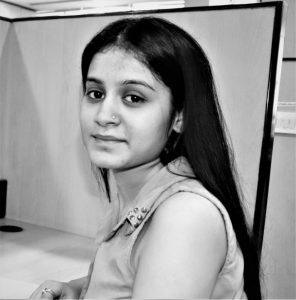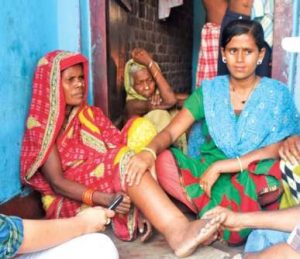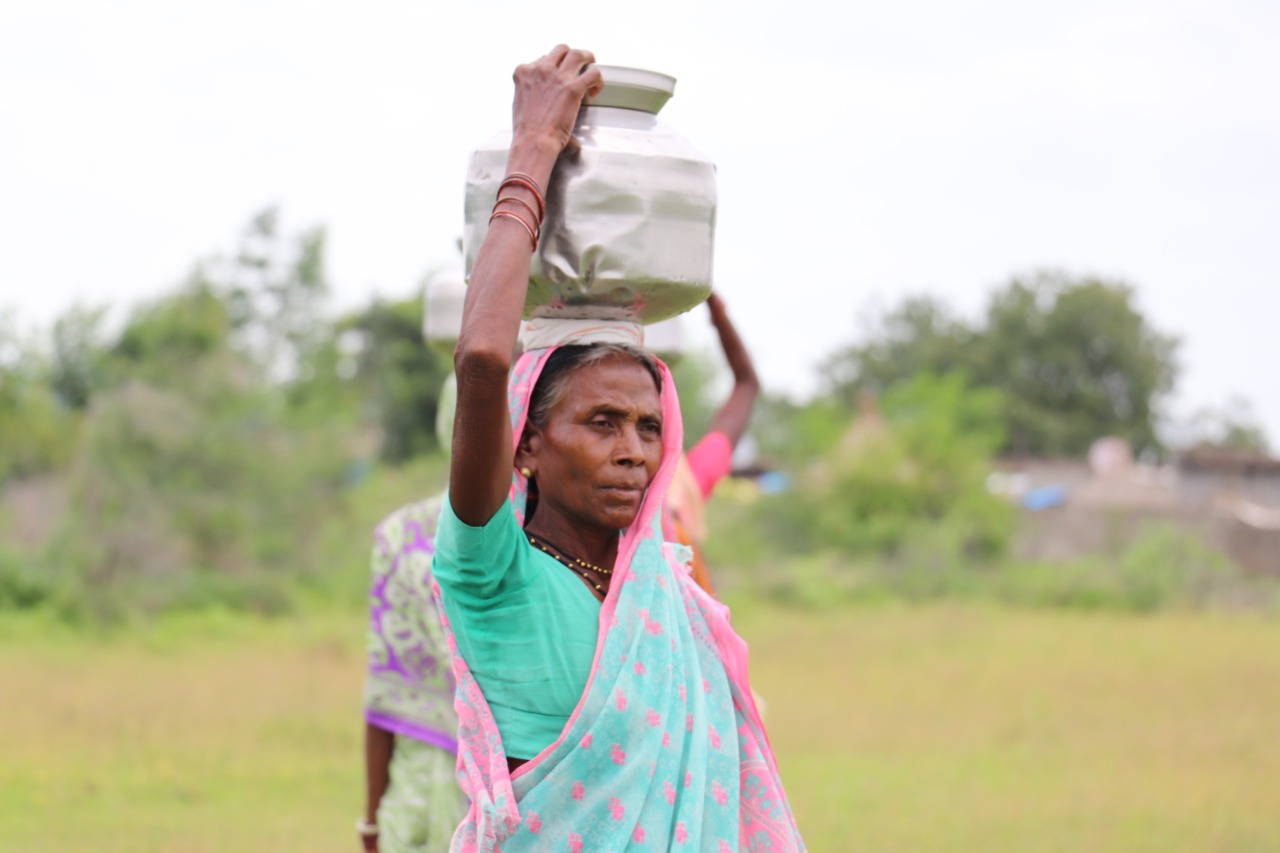- home

- Publication & Resources

- Blog
- Filariasis: Battling Superstition WITH CARE

Filariasis: Battling Superstition WITH CARE
After joining CASA’s task force, Kalpana and Nilandri started volunteering in the remote Mahasai village where people had never thought of intervening in matters as “disgusting” as elephantiasis.

By Divya Bisht
Intern | CASA Communications
“They said nobody will marry me if I contract the disease” Kalpana uttered. Due to unfavorable beliefs her parents stopped her from participating for the cause but the power of knowledge which she gained from CASA’s support group and awareness programmes made her understand that the disease of lymphatic filariasis is more like a slow poison for the patients and not contagious at all.

Kalpana shows symptoms of the disease on a patient
As a result of intense stigma surrounding the disease, it was difficult for the volunteers from village areas to step forward where they were continuously encouraged to resign from such work as the locals believed that it is highly infectious to go around the victim.
“This disease is caused only due to mosquito bites and nothing else” Kalpana lashes out. Disappointed with the sad reality that besides physical pain the victims are subjected to suffer a mark of disgrace by the society, Kalpana and Nilandri decided to provide free treatment and educate people about lymphatic filariasis with CASA.
Just like Kalpana, it was also a constant fight for Nilandri, whose right leg fell prey to polio
when she was a child and had to leave her education after ninth standard.
Able to understand the pain of children with filaria dropping out off school – Nilandri aimed to turn her life around and help people suffering from lymphatic filariasis.
Despite continual threat, the determination and bravery of the two girls came across as an ignition to other women, as a result 68 women out of 90 members become part of CASA task force team.
“Whenever I see a person with lymphatic filariasis, I inquire about her health and whether they are taking medicines on time and other preventive measures to control the spread of the disease” Kalpana added. She dreamt to see every person of village to live a respectful and filariasis-immune life.
In a society where lymphatic filariasis is considered one of the most neglected disease, Kalpana and Nilandri proved to be foot soldiers of the campaign driven by CASA who struggled and succeeded to an extent in persuading sceptical locals of the necessity of taking medications.
 Previous Blog Post NATURE IS INVINCIBLE, NOT EXTINCTION
Previous Blog Post NATURE IS INVINCIBLE, NOT EXTINCTION The Rise and Rise of People-Led Organisations
The Rise and Rise of People-Led OrganisationsFeatured Post

International Women’s Day -2021
8 Mar 2021
International Women’s Day -2021 is very special for CASA. It’s a delight to announce, CASA with the support of the Church of Sweden has launched an exclusive Gender Desk to emphasise the importance of Gender Justice work. CASA has been working for Gender Justice all throughout and across our constituencies in all these years. Gender Desk comes to add vigour […]

Overcoming Gender and Poverty Barriers
Poverty has been an inevitable problem in India since the beginning of time. The increasing problems of poverty caused by overpopulation and the unequal distribution of wealth among the people have led to a huge impact on the life of millions in the rural as well as the urban area. A person has to acquire […]

Impact of Climate Change on Women
16 Jan 2021
Climate change is a prevailing problem globally whose hazardous repercussions extend beyond the environment. Shrinking glaciers, extinction of plants and animal species, mutation, rise in the Earth’s average temperature and triggered seasonal fluctuations, are some of the impacts of climate change that have already grabbed the headline. Certain early predictions pertaining to climate changes had […]



